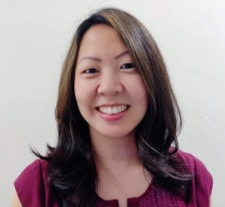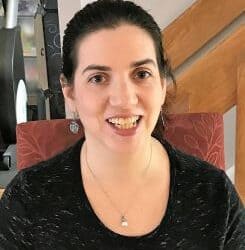Editor’s note: This is a guest post by editorial professional Kathryn Wilson.
If you’re like most people, you probably have fond childhood memories of falling asleep to the sound of someone reading to you. With the advent of audio content, it’s clear that we’re still chasing that comfortable feeling of being read to. But narrators and audio engineers aren’t the only people necessary to make quality content. Just like any print book needs a bevy of editors with different specialties, so do audio books.
Almost ten years ago, I was fortunate enough to work as an audio book editor at The American Printing House for the Blind in Louisville, KY. There, in the warren of offices and studios that comprised the Talking Books Studio, I started out as a studio monitor. My goal was to supervise each recording session with a narrator and ensure that we finished the session with as many productive, clean recorded minutes as possible. That meant knowing how to adjust audio levels, make minor edits in the moment, and most importantly of all, being absolutely certain that every single word in their book was pronounced.
It was this last task that proved most arduous and time-consuming. If you were working on a romance novel, you might be duped into thinking you were in for smooth sailing—and perhaps you were, until the characters decided to take a last-minute trip to Mozambique, and the author named every town, river, and mountain they come to.
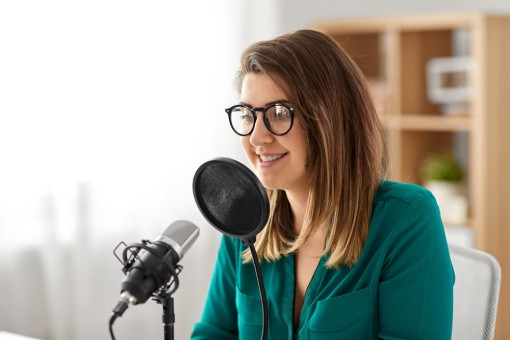
My job was to make sure we had a reliable source written down for every pronunciation the narrator chose. Each day, I had two hours to prep for the remaining six hours of recording sessions. I read ahead of the narrator so I could spot any potential bumps in the road. We had worksheets to fill out that contained a place for the word, its pronunciation, and its source. The research was then copied for the narrator and given to them before each session, a few days in advance if everything was going as planned.
As an employee of the Talking Books Studio, I was a contractor for the Library of Congress, specifically the National Library Service (NLS), and we all performed our duties with rigor, discipline, and, sometimes, a little bit of creative pragmatism. In the studio, our headquarters was a research room with dictionaries of every type: biographical, geographical, medical, folkloric, and more, as well as dictionaries for as many languages as we could get our hands on. Then, in each recording studio, you would find two copies of our main source, the Random House Dictionary: one for the reader and one for the narrator.
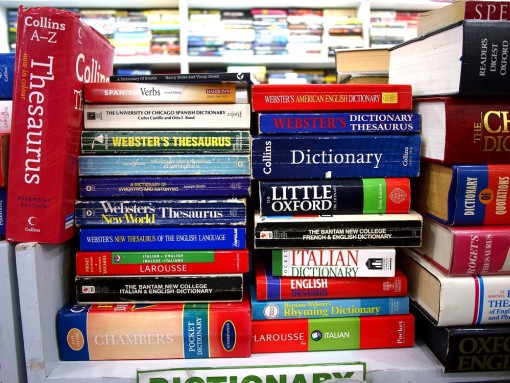
Each day, a dozen or so narrators and their monitors worked hard at recording books. Our goal was to make every pronunciation perfect—any error would result in a rejection, something that inevitably happened to everyone, but you prayed didn’t happen in the same year twice. Enough rejections meant that we could lose our contract with NLS. Their rules were strict for a reason: they wanted to ensure accuracy in every book, whether it was a torrid romance or a biography of Van Gogh.
Our in-house proofreaders (which I ended up switching to for most of my time in the studio) were our last line of defense, and they pored over each audio file, listening to it up to ten times the normal speed and following along with a hard copy of the book and its accompanying research. They would issue corrections sheets to the narrators, who would then reluctantly rerecord sections of the book where they’d mispronounced a word or forgotten it completely.
Unlike those from other audio book studios, our books were specifically designed for visually impaired and blind readers. The American Printing House for the Blind had invented a specially designed player that was made with these clients in mind. Each book was recorded on a series of cartridges that were easy to fit into the player. Even the software programs we used to record and edit the audio files were designed in-house by a team of engineers. The players and the cartridges were built in the same building as the studio, and you could walk to the back and see bins full of cartridges ready to be sent out to distributing libraries across the country.

Photo source: American Printing House
The job was one of my favorites so far. To work with other book lovers, to get paid to read at a voracious pace, to be able to have water cooler discussions about the merits of Pinyin vs. Wade-Giles—it all made me feel like I was part of something important. It’s how I met some of my closest friends, and we even formed a book group that met monthly at our favorite bar.
And the characters weren’t just those found in the books. Among our narrators was the grand dame of local theater, beloved by hundreds of readers who sent her adoring fan mail, and who you could always find by the trail of dribbled coffee she left on her way to her recording studio. We had the man who rewrote and finalized the screenplay for Leprechaun in the Hood (God bless him). We had a narrator who gave himself pep talks in the third person when he’d get frustrated with a difficult passage. We had an ex-broadcaster known throughout the tri-state area for his raucous humor (and torrid affairs). And we had a delightful Napoleonic supervisor who ruled the research room with an iron fist but always made a cake from scratch for everyone’s birthday.

Sadly, the studio has become much smaller now. You may only see three or four narrators toiling away when once every recording studio would be in use. With the advent of Audible and our customer base becoming more tech-savvy, demand has shrunk.
But still, I will remember my time there fondly. I will continue to write in diacritics when I’m bored, groan in frustration when I hear someone mispronounce a famous name, and never forget the narrator who insisted on saying gri-MACE instead of GRI-mus.
For more information about The American Printing House for the Blind, click here. To request a free player or to view the catalogue of available books, please visit the NLS Program website.
Kathryn Wilson
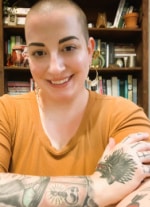 Kathryn Wilson is a fourth-generation West Virginian who has 14 years of editing, proofreading, writing, and freelance consulting experience. Known for her quick wit as well as her creativity, Wilson writes and edits with passion and precision. In her spare time, she enjoys volunteering, traveling, crafting, and bingeing reality TV (while snuggling with her two cats, of course). She lives in Harford County, Maryland.
Kathryn Wilson is a fourth-generation West Virginian who has 14 years of editing, proofreading, writing, and freelance consulting experience. Known for her quick wit as well as her creativity, Wilson writes and edits with passion and precision. In her spare time, she enjoys volunteering, traveling, crafting, and bingeing reality TV (while snuggling with her two cats, of course). She lives in Harford County, Maryland.


